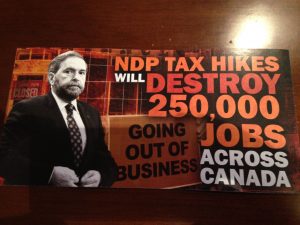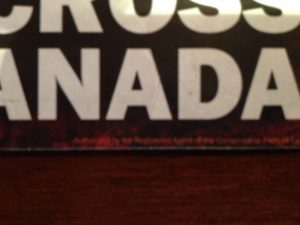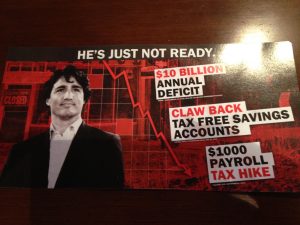Posts Tagged ‘elections’
Elevate Humanity: Support The Arts!
“Squeeee!”
That was my reaction when Julie Nesrallah, the host of Tempo on CBC Radio, said she was about to play Rimsky-Korsakov’s “Scheherazade”.
Scheherazade is one of my favourite pieces of classical music. When it plays, I soar. I am lifted out of myself to float along currents of enchantment.
When I’m driving, as is often the case when I listen to Tempo, this is problematic. My foot tends to press down on the gas pedal the more immersed I become in the music!
This transcendence, this plug-in to bliss, emphasizes the power of art to shape, teach, transform, heal, and comfort. These attributes are what we need more than ever as we all struggle to grapple with the consequences of the global pandemic.

Galway Street Club, Dublin, Ireland, 2016
Our focus as individuals, families, and communities is on surviving. The focus of governments is on managing health systems and restoring economies. However, to ensure the well-being of society and the well-being of each of us, we need to support creative expression. We need to ensure that the arts thrive.
Unfortunately, arts and culture seldom register as a voting issue during election campaigns, such as the one currently underway in British Columbia. When cast alongside health, housing, and jobs, arts and culture drop down the list of priorities as seemingly, relatively trivial.
I understand why that happens and yet I feel the tendency to do so is misguided. Embedding art in all that we do enriches our experiences, enhances our daily lives, and elevates our humanity. As such, it’s critical that we push our political parties to include support for the arts in their platforms and our elected officials to invest in the arts, especially to facilitate the inclusion of the arts in education, in schools and in the curriculum.
To win the argument for the importance of the arts, professional performance arts organizations often deploy and rely on economic arguments to secure sponsorships and donations. It is true that arts organizations function as economic engines. They employ a wide array of people and generate spending in a number of business sectors. As such, this is an important argument to make especially in a world that justifies investments by returns in dollars and cents. In our current times though the pandemic mitigates the effectiveness of such arguments. We need to emphasize, as we always should do, that investing in the arts is about more than the bottom line of tangible, monetary effects.
It is important to note that arguing for government support of the arts is not the same as advocating for state-sponsored culture. The latter is about nourishing the arts and the latter is about promulgating propaganda. That is why support of the arts should not be contingent on government funding alone. The arts will only survive with individual and community support. We each carry a measure of personal responsibility to ensure that artists and arts organizations have the space, time, and resources to flourish and create.
I also believe that the definition of what constitutes art must be inclusive, expansive, and generous. It is not about creating hierarchical preferences for one art form or the other or privileging the art of certain groups and a few voices. For example, people tend to label opera as elitist and yet opera, fundamentally, is about the human voice and the power of the voice does not depend on costumes, sets, and large venues. Some of the most profound experiences I have had with opera have been in intimate gatherings with no staging to distract from the singer’s voice.
Opera is not an elite art form. It is typically available to only a few because professional opera productions are expensive to stage. That is why the survival of opera as an art form in its professional incarnation depends on government, corporate, and individual support. More importantly, it is crucial for opera companies to invite audiences in with programmes that enhance affordability and to venture out to meet audiences with community-based initiatives.
Support for the arts is about elevating horizons and expanding visions. Art in all its forms should never be a privilege which only a few enjoy and it should never be seen as a talent which only a few can exercise. Creative expression is in all of us and it is for all of us. It is a bridge to building community and understanding. It is a celebration of diversity. It is a path to better.
Art is what makes our spirits soar and our hearts sing.
It makes us more than.
Support the arts in these bleak times. Financially if and when you are able to, with your time and attention if you cannot, because that song, that book, that drawing, that moment of creativity captured in whichever art form you enjoy is a spark of hope.
The Indiscernible Tagline
During last year’s federal election campaign in Canada, I received a direct mail piece that I thought flouted the principles of transparency.
After filing a complaint and an extended correspondence with a representative from the Office of the Commissioner of Canada Elections, I knew that the leaflet met the letter of the regulations. I was adamant that it did not meet the spirit of them.
This is a copy of the letter I mailed today to The Honourable Maryam Monsef asking that she initiate a process to amend the regulations pertaining to the tagline on campaign materials.
August 24, 2016
The Honourable Maryam Monsef
Minister of Democratic Institutions
Centre Block, Suite 546S
House of Commons
Ottawa, Ontario
K1A 0A6
Dear Ms. Monsef,
Please accept my belated congratulations on your successful election as a Canadian Member of Parliament and on your subsequent appointment to Cabinet as the Minister of Democratic Institutions.
Last year’s election campaign was a long one and, on occasion, bitterly fought. In Canada, the integrity of the general voting system is upheld by its overall structure as well as the regulations and operational details of which it is comprised.
While your main focus now is on electoral reform, I would like to draw your attention to a flaw in the regulations of the Canada Elections Act (Act) that pertain to the tagline in campaign marketing materials.
During last year’s federal election campaign, I received many direct mail pieces. There was one in particular that I found objectionable. While the mailer met the requirements of the regulations, it clearly contravened the intent and the spirit of the rules. I have enclosed the original mailer for your reference.
 I filed a complaint about this particular mailer, via an online form, on October 9, 2015. My complaint read as follows:
I filed a complaint about this particular mailer, via an online form, on October 9, 2015. My complaint read as follows:
I received a piece of campaign literature today which is national in scope. It does not clearly identify the sender, the political party, or the official agent. Furthermore, it does not even identify the name of the local candidate in my riding. This appears to me to violate the guidelines, at the very least in spirit, for advertising material. Depending on who paid the costs of production & distribution, it may also violate financing guidelines. (9 October 2015)
The response I received was that the mailer met the requirements of the regulations. Specifically, the email dismissed my concerns as follows:
Thank you for your message of October 9, 2015 with respect to the election advertising leaflet that was distributed in your riding.
The Canada Elections Act (Act) requires that a candidate or registered party who runs an election ad mentions in or on the message that its transmission was authorized by the candidate’s official agent or by the party’s registered agent. The Act is silent as to the size, colour or placement of that mention, which is referred to as the “tagline”. I would draw your attention to the bottom right of the page showing Thomas Mulcair, under the word “Canada” where the following statement appears: “Authorized by the registered agent of the Conservative Party of Canada”. The tagline does appear and provides the information required by the act. (11 October 2015)
 As you can see for yourself, the tagline is barely discernible. I struggled to decipher what it said. It would have been impossible for many to even know that a tagline had been included.
As you can see for yourself, the tagline is barely discernible. I struggled to decipher what it said. It would have been impossible for many to even know that a tagline had been included.
I was not satisfied with the response and had further correspondence with an agent from the Office of the Commissioner of Canada Elections. After sending him a scanned copy of the direct mail piece, I received this response:
Good morning Ms. Faris:
I am familiar with the literature you forwarded me. We had previously reviewed it and as you noted the tag line is included on the ‘Mulcair’ side of this literature. It does state that the political advertising is authorized by the registered agent for the Conservative Party of Canada. Generally speaking, the Act does not control the content of election advertising (or the font size for the authorization line), but regulates the reporting of associated expenses and requires that an authorization statement appear on the advertising.
The literature you received is an initiative from the Conservative Party of Canada and an expense of this political party. It is not associated with the local Conservative Party of Canada candidate in your electoral district.
Hoping this clarifies this matter … (14 October 2015)
I did not find the response satisfactory and wrote again:
It clarifies matters, but does not resolve my complaint.
Here’s the thing: a tagline is meant to identify the sender. If it is virtually impossible to read, then it defeats the purpose. Just having it there is not enough. It respects the letter of the regulation, but does not satisfy the intent.
Similarly, if benefits accrue to the local candidate, then a portion of the costs must be assigned to them even if those expenses are recorded as an in-kind donation.
I’d like to know what steps I should pursue now to continue the examination of this issue. (14 October 2015)
The agent tried to address my concerns and the last note I received was as follows:
Section 320 of the Canada Elections Act (Act) is clear:
Message must be authorized
320. A candidate or registered party, or a person acting on their behalf, who causes election advertising to be conducted shall mention in or on the message that its transmission was authorized by the official agent of the candidate or by the registered agent of the party, as the case may be.
This matter has been reviewed previously. It is clear that this election advertising (literature) is distributed and paid for by the Conservative Party of Canada – thus the tag line of authorized by the Registered Agent for the Conservative Party of Canada. The tag line may be difficult to read, however the Act does not regulate the content of the advertising other that what is noted in Section 91 of the Act:
Publishing false statements to affect election results
91. No person shall, with the intention of affecting the results of an election, knowingly make or publish any false statement of fact in relation to the personal character or conduct of a candidate or prospective candidate.
It may be noted that national advertising by a Party (any political party) may benefit a local candidate. It may also be argued that advertising by a candidate may benefit a Party. Almost every advertising generated by a candidate will include their party’s logo.
In reviewing this matter, the Office of the Commissioner of Canada Elections is satisfied that the required information is contained on the advertising being discussed and its expense will be reported by the Party. With regards to your complaint, we have reviewed the information you have provided and concluded that the circumstances as described do not appear to contravene any provisions of the Act, and as such, cannot be pursued by this Office. (14 October 2015)
Despite the best efforts of the representative from the Commissioner’s Office, I still believe that this direct mail piece stretched the limits of the regulations to the point of absurdity. It is not enough to simply include a tagline; it must be legible and clearly identifiable. I also believe that the local candidate’s name should appear on any directly distributed material since Canadians vote for Members of Parliament, not for party leaders.
 Minister Monsef, I urge you to initiate a process to review and amend the regulations of the Act that deal with the tagline and the identity of the sender. Such details are critical; they underpin the integrity of Canada’s voting system, whether as currently constituted or as altered for future elections.
Minister Monsef, I urge you to initiate a process to review and amend the regulations of the Act that deal with the tagline and the identity of the sender. Such details are critical; they underpin the integrity of Canada’s voting system, whether as currently constituted or as altered for future elections.
Thank you for your consideration of this matter and I look forward to amended regulations which uphold the principles of transparency and integrity for election campaign materials.
Sincerely yours,
Reema Faris
cc.
Marc Mayrand, Chief Electoral Officer of Canada, Elections Canada
Commissioner of Canada Elections
Pamela Goldsmith-Jones, Parliamentary Secretary to the Minister of Foreign Affairs
Being Human and the Loss of Perspective in Politics
Errare humanum est [To err is human]. – Anonymous: Latin
For to err in opinion, though it be not the part of wise men, is at least human. – Plutarch (46-120 C.E.)
I presume you’re mortal, and may err. – James Shirley (1596-1666)
To err is human, to forgive divine. – Alexander Pope (1688-1744)
Then gently scan your brother man,/ Still gentler sister woman;/ Though they may gang a kennin’ wrang. To step aside is human. – Robert Burns, Address to the Unco Guid [1787]
“Address to the Unco Guid’ makes the point that it is this natural sympathy and compassion that is important in society: not self-righteous condemnation.” – Juliet Linden Bicket
I remembered Alexander Pope’s words this week as I watched events unfold in the BC provincial election. When I checked my copy of Bartlett’s Familiar Quotations to verify them, the footnotes led me to other quotes on the same theme and to Google for the full text of the Burns poem where I found the comment by Bicket.
And despite these wise words, which span approximately 2,000 years of human history, it would seem that in our time the motto has become “to err is human and to forgive is impossible”.
Or maybe even more to the point, “to err is human and let’s make sure everyone’s mistakes are never forgotten”.
And given our rush to judge others on this principle, it seems to me that the greatest disincentive to running for public office has become the process of getting elected.
While this trend has been emerging over time, it seems to have bloomed with noxious fervour in this election.
We’re all on the lookout for “bozo eruptions”. That’s the term applied to the actions of candidates who slip up in real time, but everything has become fair game: whether a word that’s said today or over 20 years ago, whether a misstep now or one from long ago.
And I have to ask what added value, if any, is there in this “new” way of doing politics. Does it benefit voters? Does it allow society to progress? Does it ensure the health and vitality of our democratic institutions?
Why?
Because we have made perfection a condition of holding office and yet no one is perfect. It’s not human.
Because we have lost perspective. If anything from any point in our lives can be construed as a liability, then we lose the ability to distinguish between misdemeanors and serious crimes.
Because we have forgotten that living involves choices and that we sometimes make bad choices, particularly when we’re young. But we learn and those mistakes do not necessarily or automatically make us incapable, incompetent, or untrustworthy for life.
Because setting up impossible standards for conduct and behaviour lead to unreasonable controls being implemented to maintain power once it’s been secured.
And that’s why we have a parliament full of men and women commonly derided as trained seals.
We have parliaments and legislatures which we denigrate and political representatives whom we disrespect. We have governments, political parties, and candidates who are more focused on slander and defamation, on digging up the dirt, than they are on policy and good governance.
And that’s an unforgivable mistake.
